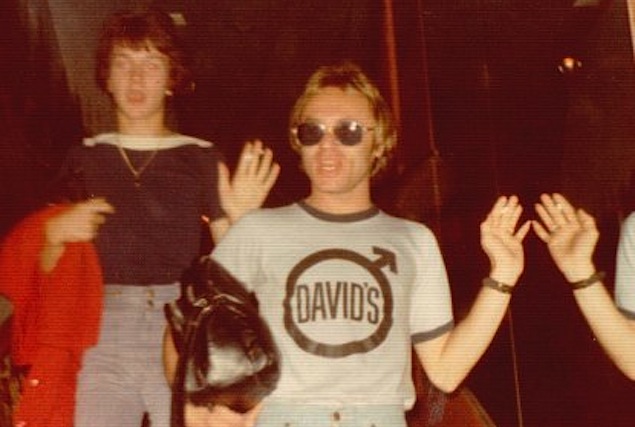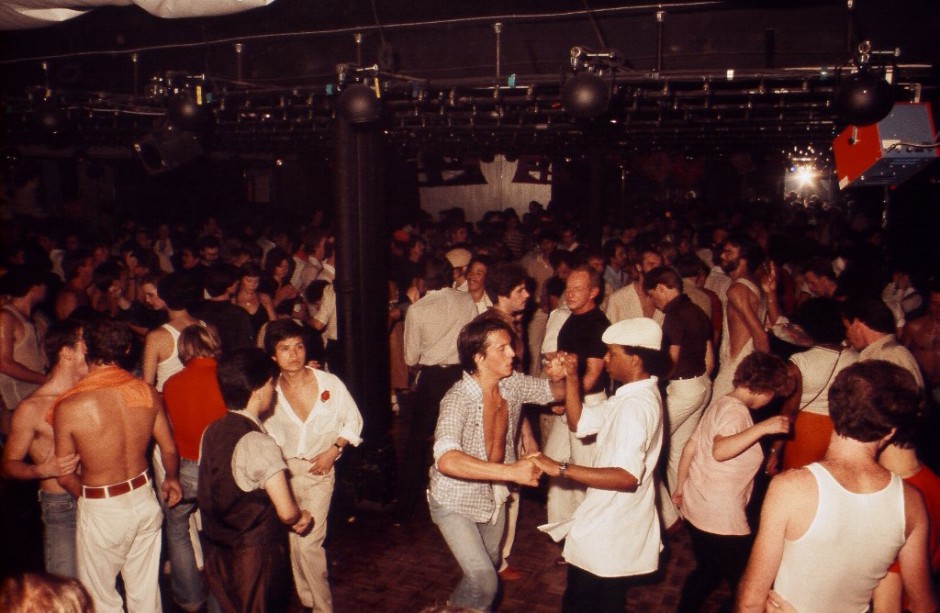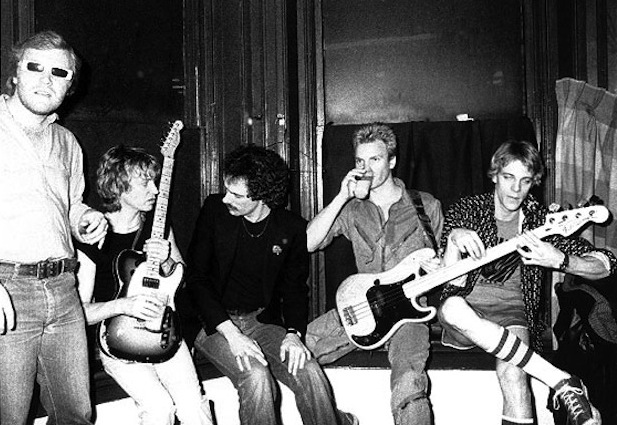Allan Bell a.k.a. Phyllis (left) with Sister Rock-On at David’s. Photo courtesy of Wendy Peacock.
Article originally published March 26, 2013 by The Grid online (thegridto.com).
In its brief lifespan, this ‘70s hotspot served as both a gay disco and punk-rock haven—before it all ended in a mysterious fire and murder.
BY: DENISE BENSON
Club: Club David’s, 16 Phipps
Years in operation: 1975-1977
History: The allure that the Yonge and St. Joseph area once held for creatures of the night has been detailed in a number of previous Then & Now pieces, including those about early 1980s venues Voodoo and Club Z. Here, we visit a prior decade to travel a short distance south, down a once-existing strip of the St. Nicholas alleyway, to a barely-there street called Phipps.
Moving and storage company Rawlinson Cartage constructed the building at 16 Phipps in the late 1890s. A small tunnel, thought to once hold a conveyor belt, connected it to the building directly north, at 11A St. Joseph. As with a number of neighbouring structures, it was also erected by Rawlinson.
In the early 1970s, 11A St. Joseph was home to popular all-ages gay male dance club The Manatee. Nearby Yonge Street bars The Parkside Tavern and St. Charles Tavern were gay hotspots, as was intimate Isabella Street disco Mrs. Knights.
Club David’s added new possibilities to the mix when Jay Cochrane and Sandy Leblanc opened it in the spring of 1975.




